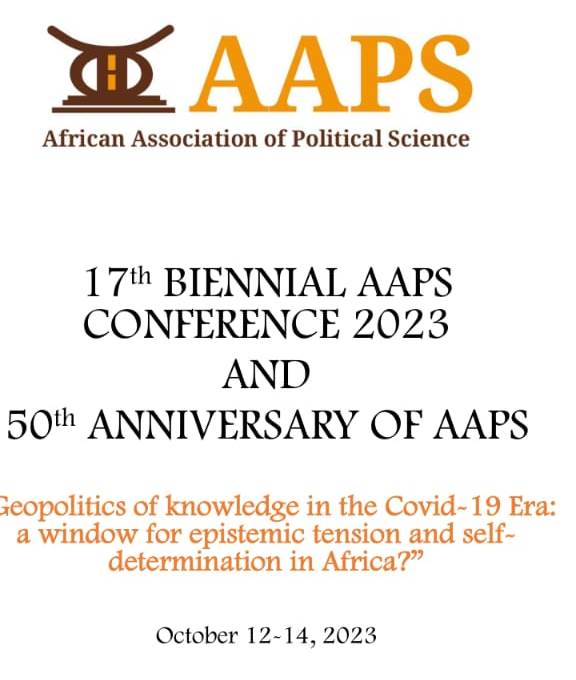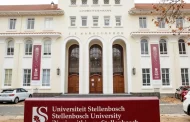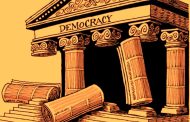The African Association of Political Science (AAPS) might have experienced an epistemic conversion of Pauline proportion. Those who see the title of this conference as a tectonic shift in knowledge politics and, by implication, Africa’s struggle for equity can hardly be out of sync. The title of its 2023 conference – Geopolitics of knowledge in the Covid-19 era – appears to mark an embrace of critical geopolitics and thus a shift from classical or even radical theories of International Relations. Although Intervention does not know what have been the themes of AAPS annual conferences in the past few years, they are very unlikely to have been about a discourse-oriented approach to Political Science as in this year’s.
 Much of Political Science in Africa has, arguably, been very traditional rather than of the critical tradition and certainly not the variant of critical scholarship that accepts that reality is constructed and that knowledge is, therefore, primary in the list of power resources that can be mobilized for continental liberation. It is in that sense that the theme for this year signals a shift of tectonic proportions.
Much of Political Science in Africa has, arguably, been very traditional rather than of the critical tradition and certainly not the variant of critical scholarship that accepts that reality is constructed and that knowledge is, therefore, primary in the list of power resources that can be mobilized for continental liberation. It is in that sense that the theme for this year signals a shift of tectonic proportions.
The theme might have been informed by the reality that there are very few or nearly no political scientists on the list of the names of scholars setting the agenda in politicizing the African crisis, most of them coming from Literature – Achebe, Soyinka, Ngugi, Mbembe, etc – and then Philosophy – Apia and the likes. Mahmoud Mamdani is a political scientist but he is not a Realist or Liberal. He is of the postcolonial bent which puts him in the critical rather than traditional Political Science.
 Knowledge is not where a good versus bad kind of classification makes much sense but the idea that the communication of the world (in the era of Covid-19) have spatio-cultural blinkers with implication for ordination and subordination in a world of unequal power relations would be more appropriate for the African continent at this point in time.
Knowledge is not where a good versus bad kind of classification makes much sense but the idea that the communication of the world (in the era of Covid-19) have spatio-cultural blinkers with implication for ordination and subordination in a world of unequal power relations would be more appropriate for the African continent at this point in time.
It would, therefore, be great if the shift signaled in the theme of AAPS’s conference this year is brought down from high Heavens to the campuses, particularly in Nigeria where critical Political Science has not had much purchase compared to many other African countries. There is hostility to it, there is also lack of awareness about in a systematic manner and, finally, the regulators do not seem to know how to go about it.
More than 75 % of the prospective undergraduates have absolutely no desire to study Political Science in Nigeria, for instance. 90 % of those who found themselves studying it are doing so because that was the only thing available. Although this is partly because of the lifeless manner it is taught by academics who have not worked on domesticating it, it is substantially because of the question of what the recipients can do with the essential BSc Political Science degree in a drastically changed labour market.
That is why Departments of Political Science across Nigerian universities are fighting their History counterpart because History which is also hated by prospective students smartly solved the problem by adding International Relations to its designation and ended up attracting to itself those who would have ordinarily gone to Political Science. That has left the Departments of Political Science arguing that History is not equipped to teach International Relations which is just epistemic rubbish. History does not approach International Relations from the same angle that Political Science does but it is debatable who does it better, after all why did Historical Sociology of International Relations emerge.
AAPS should get the accolades for lighting a match. Knowledge production is the battlespace of the era of informationalised capitalism and the underdogs of tomorrow will be those still lost in the ‘old’ ways of knowing. Exploitation and oppression has shifted from the era of slave trade and the ‘working class’ to epistemic exploitation. If you don’t know, ask the FAANG companies.




























